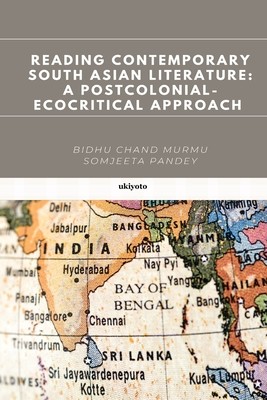
- We will send in 10–14 business days.
- Author: Bidhu Chand Murmu
- Publisher: Isekai Labs Llp - Etail
- ISBN-10: 9357142339
- ISBN-13: 9789357142335
- Format: 15.2 x 22.9 x 1.5 cm, minkšti viršeliai
- Language: English
- SAVE -10% with code: EXTRA
Reviews
Description
As a school of criticism, the central argument in Postcolonial studies revolves around dismantling the dominant narrative of colonial or imperial history. A colonization process not only captures the native people and culture but their lands too. Proper reading of postcolonial theory would be by understanding the epistemology of colonized environment or vice-versa. Even after decolonization the ideology of imperialism is persistent in native memory and thought. An embeddedness in native psyche not only nurtures imperialism but manifests them with the footprints of colonial masters. In postcolonial countries the discourse of social and economic justice is deeply rooted in ecology. As a consequence, environmental activists from postcolonial nations tend to see any modern policy as a disguised form of neocolonialism or imperial dominance, globalization and modernization. Since the shocks of imperialism and globalization are most strongly felt in the third world countries, most of them being former colonies, this edited volume intends to explore texts by South Asian writers examining how these writers and their characters cope with the destruction of the environment. This edited volume plans to seek out the writings of epistemological understanding of our environment. Moreover, the volume would also see a critical entanglement of race, class, gender, culture, modernization, globalization, nation and trans-nation etc. Furthermore, this book will attempt to show how different genres of literature ranging from fiction to non-fiction can bring out inimitable insights into varied understanding of postcolonial and ecocritical studies.
EXTRA 10 % discount with code: EXTRA
The promotion ends in 22d.01:47:40
The discount code is valid when purchasing from 10 €. Discounts do not stack.
- Author: Bidhu Chand Murmu
- Publisher: Isekai Labs Llp - Etail
- ISBN-10: 9357142339
- ISBN-13: 9789357142335
- Format: 15.2 x 22.9 x 1.5 cm, minkšti viršeliai
- Language: English English
As a school of criticism, the central argument in Postcolonial studies revolves around dismantling the dominant narrative of colonial or imperial history. A colonization process not only captures the native people and culture but their lands too. Proper reading of postcolonial theory would be by understanding the epistemology of colonized environment or vice-versa. Even after decolonization the ideology of imperialism is persistent in native memory and thought. An embeddedness in native psyche not only nurtures imperialism but manifests them with the footprints of colonial masters. In postcolonial countries the discourse of social and economic justice is deeply rooted in ecology. As a consequence, environmental activists from postcolonial nations tend to see any modern policy as a disguised form of neocolonialism or imperial dominance, globalization and modernization. Since the shocks of imperialism and globalization are most strongly felt in the third world countries, most of them being former colonies, this edited volume intends to explore texts by South Asian writers examining how these writers and their characters cope with the destruction of the environment. This edited volume plans to seek out the writings of epistemological understanding of our environment. Moreover, the volume would also see a critical entanglement of race, class, gender, culture, modernization, globalization, nation and trans-nation etc. Furthermore, this book will attempt to show how different genres of literature ranging from fiction to non-fiction can bring out inimitable insights into varied understanding of postcolonial and ecocritical studies.


Reviews